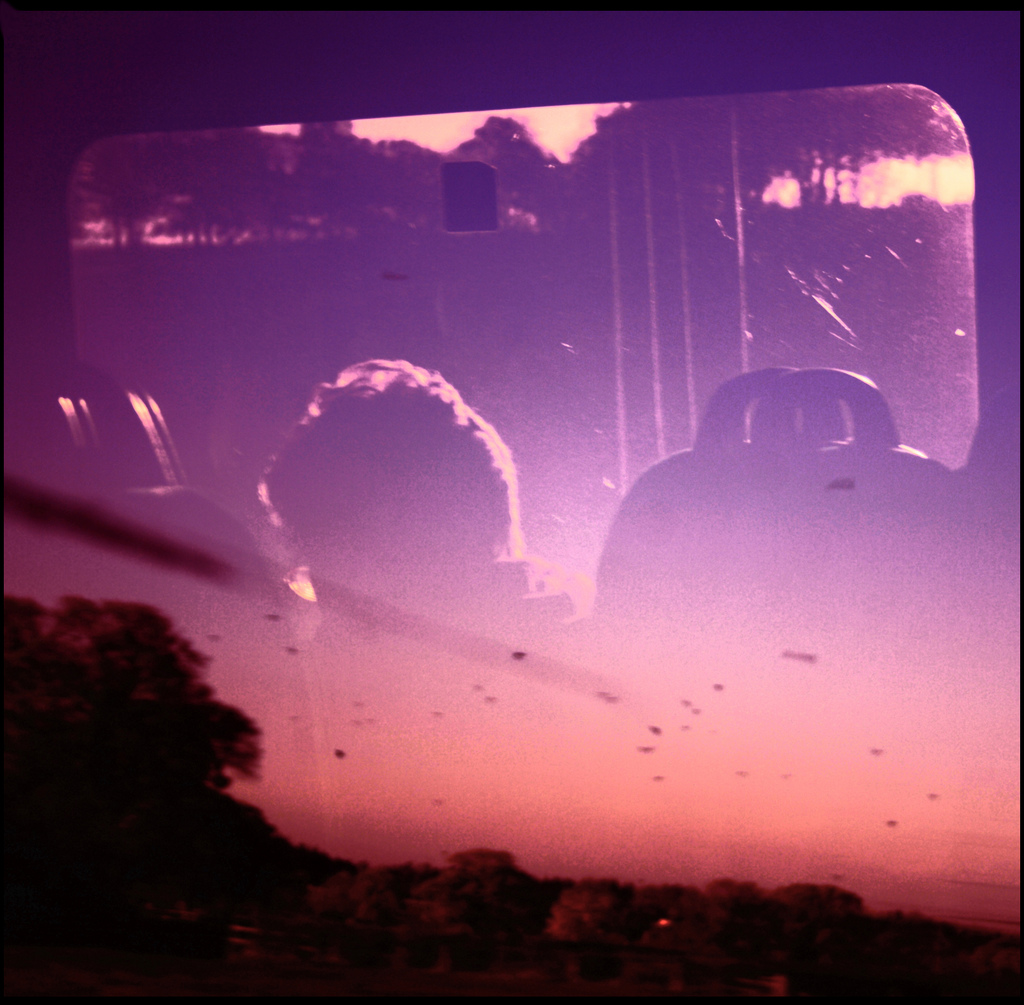I sit on the floor of a rocking train, nestled in the corridor between the third and fourth car. The room is just wide enough for me to extend my legs out with the soles of my ballerina flats touching the opposing wall. My purse is settled beside me, along with an opaque shopping bag holding a medico della peste papier maché mask, its white face, beak-like nose and painted on glasses are hidden, wrapped in brown paper. Between my gloved hands I hold open Ethan Frome, but as I strain to follow the letters on the page my eyes are drawn elsewhere.
One porthole window stands high on a wall above me, and I glance out to the thin clouds in a faintly grey sky and the crests of olive trees passing. A stream of hidden sunlight makes a clean line, casting myself and the woman before me in shadow. Her oval face is marked with a smooth mole, no bigger than the tip of a pinky, in the middle of her left cheek. Thick black curls are tied up into a tight ponytail high on the back of her scalp, leaving her face open. Eyes closed, her breathing is slow with the weight of exhaustion.
As the clacking train slows to a stop, the grating door of the fourth car opens to reveal the tightly packed innards where people of all colors sit in coveted seats or else stand in the thin passage so those disembarking are forced to brusquely push through. At the sound of the steel door, the woman flicks open her eyes, fluttering her lids, then darting her irises this way and that before settling them on me. I manage a little smile, one that she doesn‘t return. Instead, her body fidgets to find a more comfortable position within the small space and settles the right side of her head on the wall. Her hands rest in the pockets of her olive green peacoat which is spotted in places—on her rounded shoulders, between her breasts, on her collar—with confetti from the carnivale parades. In the cobblestone square in front of the chiesa di St. Marco, clusters of people in red and plaid capes played bronze trumpets as they walked through the streets, while two men dressed in white and wearing masks of gold threw handfuls of colored confetti into the air above that drizzled down upon our heads like paper rain. When I looked at her then, her eyes that are now weary were bright with happiness as she tried to catch the dots and streamers that floated in the air. In Venice, far enough from her home in the north, she could forget.
And there, in the soft sunlight, in the breath of the sea, she was beautiful.
As each stop lightens the cars, her face becomes more cinched into a scowl, as she forces her eyes shut and tightens her lips. I know she is not asleep since she is tapping a finger inside her left pocket. When I hear the muffled voice of the conductor announce “Sacile. Sacile,” I stand and gather my things, but I see that she has not. I wonder if she would rather stay on this train until it stops at its end. Regretfully, I put out my hand and tap her three times on the shoulder. She opens her eyes and says nothing, and her fingers curl around the handles of her bag as she stands. The brakes squeal as the train stops. A brief glance out the window shows the station, a small white-walled building with terracotta shingles and a blue sign with white letters reading “Sacile.” I take a few steps to the door on the opposite side, slide it open, and jump a foot onto the stone platform, my shopping bag rustling. She does the same. The door bangs closed behind her. Within a few minutes, we watch the train roil slowly up the track towards the mountains.
______
Photo credit: Jim Blob Blann / Foter / CC BY-NC-ND

